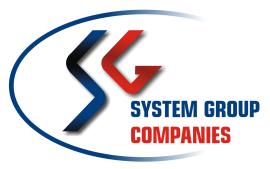Carbon footprint
Measuring and understanding a business’ carbon footprint is the first step in managing and reducing their greenhouse gas emissions.


A well-prepared greenhouse gas inventory is an essential tool for businesses who want to understand their environmental impact and identify ways to reduce their carbon emissions.
Preparing and managing a greenhouse gas inventory is a complex process that requires a detailed understanding of the emissions associated with every stage of a product or service’s lifecycle, from raw material extraction to disposal, and that supply chain data is complete and transparent. At SGY, we overcome these challenges by using advanced data collection and analysis tools, and by engaging suppliers and stakeholders to promote transparency and collaboration.
Our Process
Defining Organizational Boundaries
We work with businesses to identify and quantify sources of direct and indirect greenhouse gas emissions.
Prioritization Analysis
We help businesses identify the areas of their business that have the highest greenhouse gas emissions and prioritize actions to reduce them.
Emission Reduction Strategy Development
We work with businesses to develop emission reduction and carbon neutrality strategies that reflects their sustainability goals and stakeholder expectations.
Reporting in Accordance with International Standards
We report on businesses’ carbon footprint in accordance with international standards such as the Greenhouse Gas Protocol and ISO 14064.
A Proactive Approach to Reducing Environmental Impact
We help our clients to take proactive steps to reduce their carbon footprint, lower their operating costs, and build a stronger, more sustainable business.





Reducing Environmental Impact: A Step Towards Sustainability
By identifying areas of high emissions and implementing strategies to reduce them, businesses can significantly reduce their carbon footprint and contribute to global efforts to mitigate climate change.

Maximizing Sustainability and Profitability
By reducing energy consumption, businesses can lower their utility bills and operating costs, leading to increased profitability. Additionally, by adopting sustainable practices and reducing waste, businesses can often find new revenue streams and tap into emerging markets for environmentally friendly products and services.

A Strategic Approach to Environmental Compliance
Regulatory bodies around the world are increasingly imposing stricter requirements on businesses to reduce their environmental impact. By understanding their emissions and implementing strategies to reduce them, businesses can demonstrate a proactive approach to environmental compliance and avoid costly fines and penalties.

The Key to Building a Sustainable Business Reputation
By conducting carbon footprint studies and implementing strategies to reduce emissions, businesses can improve their reputation and attract environmentally conscious customers and investors. Additionally, by being transparent about their environmental performance, businesses can build trust with stakeholders and differentiate themselves from competitors

Frequently Asked Questions
What is carbon footprint?
A corporate carbon footprint is the total amount of greenhouse gas emissions that a company produces, both directly and indirectly, through its operations, supply chain, and business activities.
Why is it important for companies to measure their carbon footprint?
Measuring a company’s carbon footprint is important for several reasons. Firstly, it helps companies understand their environmental impact and identify areas where they can reduce emissions. Secondly, it can help companies comply with regulations and avoid fines and penalties. Finally, it can lead to economic benefits by reducing energy consumption and operating costs.
What strategies can companies use to reduce their carbon footprint?
Companies can implement a range of strategies to reduce their carbon footprint, including improving energy efficiency, switching to renewable energy sources, optimizing transportation and logistics, reducing waste, and promoting sustainable practices throughout the supply chain. Many companies also set targets for reducing emissions and report on their progress towards these targets.
How can System Group help with corporate carbon footprint?
At System Group, we offer comprehensive carbon footprint services to help businesses measure and reduce their environmental impact. Our team of experts uses advanced data collection and analysis tools to identify areas of high emissions and develop strategies for reducing them. We also work closely with suppliers and stakeholders to promote transparency and collaboration throughout the supply chain.

